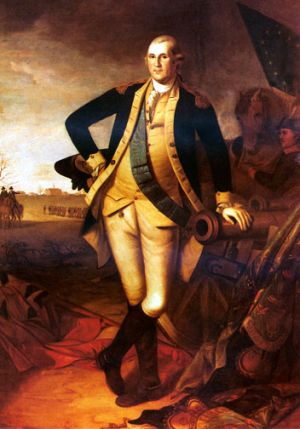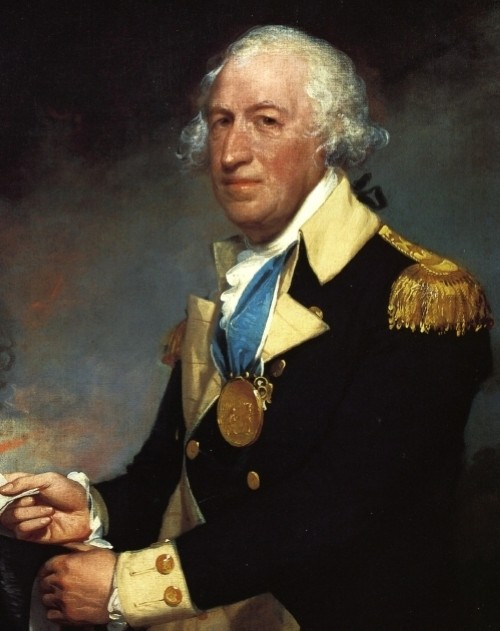The Conway Cabal was an attempt by several generals and members of Congress to replace General Washington as leader of the Continental Army and discredit him in the eyes of Congress and the American people. It took place in the fall of 1777.

The Conway Cabal took place after the British had captured Philadelphia, forcing Congress to relocate to York, Pennsylvania. This loss combined with the American losses at Brandywine and Germantown, General George Washington was taking a lot of heat. Criticism for his failures poured in, and especially from Brigadier General Thomas Conway.
Conway felt his own actions outshone General Washington’s during the battle of Brandywine, and didn’t mind who he told. He wrote Congress, requesting a promotion to Major General, ahead of several superior officers. General Washington believed this would damage already low morale.
General Thomas Conway wrote to General Horatio Gates, encouraging him to recommend himself as a replacement for Washington. “Heaven has been determined to save your Country, or a weak General and bad Councellors would have ruined it.”
Gates was the hero of Saratoga, even though the strategy of Saratoga was due to General Washington’s planning with General Schuyler. Gates began giving Washington a really hard time. He did not send news of his success at Saratoga; he did not respond to requests for reinforcements. He stirred up trouble by writing to the other generals including Conway,
One of General Gates’ aides, James Wilkinson, drunkenly told another aide, who informed his boss, General Lord Stirling, who in turn, told General Washington. Washington made sure Conway knew he was aware of the contents of the letter, though Conway denied writing the phrase, “weak general.” He told Washington that he allowed himself to be influenced by lesser-experienced soldiers.
Washington sent his aide Col. Alexander Hamilton to hurry Gates along in sending his reinforcements; Hamilton ran into all kinds of delays. Washington’s troops were as stretched out as he could afford without Gates’ reinforcements, which cost him Fort Mercer and Fort Mifflin, and gave the British time to reinforce Philadelphia—losses which were blamed on Washington. His lack of soldiers meant he was forced to bluff General Howe into believing he had more troops than he did, and Congress and the other generals thought Washington should be attacking in more force, and blamed his failure on this lack of action.

General Horatio Gates
November 1777, Conway turned in his resignation, but there was a group inside Congress that supported the Conway Cabal. This faction wrote Gage, telling him the army was basically lost without him and to prepare to replace Washington. Instead of accepting his promotion, Congress promoted him to Inspector General, a position equal to Major General. Congress also created a committee to keep an eye on Washington, and they also questioned whether he had the experience needed to win the Revolutionary War.
To make things even more difficult for Washington, the Board of War made General Gates their president. When Conway discovered Wilkinson was the breach in information, he wrote Washington and accused him of having someone steal his correspondence. Unfortunately for the leaders of the Conway Cabal, this use of “letters” tipped off Washington to the fact that there were more than one of the damaging letters.
Congress began receiving messages that insinuated that as soon as Gates, General Charles Lee, or Conway was given command of the army (all foreign-born men), the South would supply the army with many soldiers. President of Congress Henry Laurens got an anonymous letter accusing all of America of idolizing Washington. Laurens just sent it on to Washington without presenting it to Congress.
The American people weren’t the only ones attacking General Washington. The British published several forged letters that were supposed to have been written by Washington which portrayed him as a man who would sacrifice anything, including his family, for the sake of the Revolution. These letters were meant to make Washington look cold-hearted, and in Washington’s words, “They were written to show that I was an enemy to independence, and with a view to create distrust and jealousy.”
Washington explained to Congress, who then demanded to see the letter. Gates and Conway refused to hand it over, and the rest of the generals supported Washington. Congress ordered Washington to hold a council, and required Gates to attend, establishing his authority over Gates and their support of Washington. Conway threatened to resign, and to his chagrin, Congress accepted, and the Conway Cabal died.


